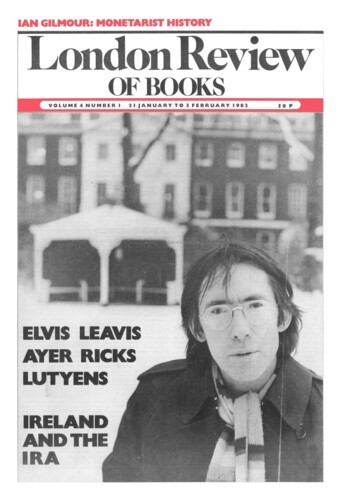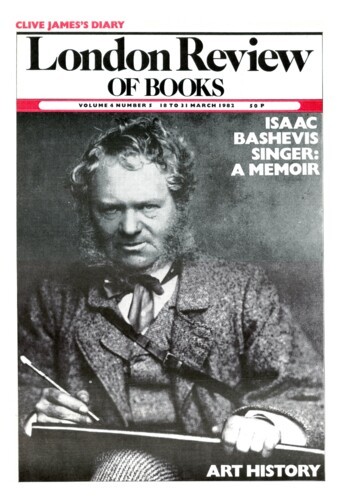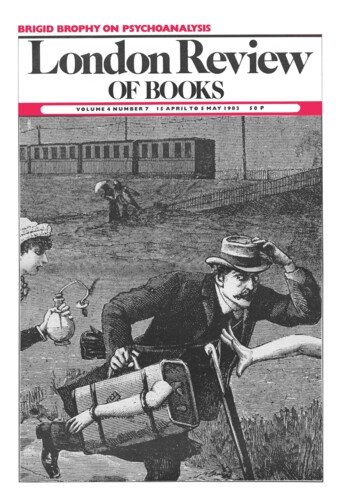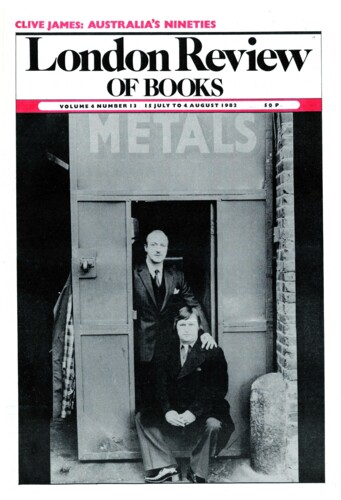Architect as Hero
David Cannadine, 21 January 1982
Lutyens lives! After three decades in which his reputation has been in ashes, the most esteemed English architect of his time, whose death on New Year’s Day 1944 was mourned as if an emperor had passed, now returns in triumph to his phoenixed pedestal. That is the message of this torrent of books which have recently gushed from the architectural presses, pouring praise on Lutyens and his works. Written primarily by a younger generation of architects and architectural historians, they emphatically reinstate the interpretation eloquently enshrined in the great Lutyens Memorial published in 1950, where Christopher Hussey, in his 600-page biography, and A. S. G. Butler, in his three volumes of plans, plates and commentary, acclaimed our Ned as ‘the greatest artist in building whom Britain has produced’.




